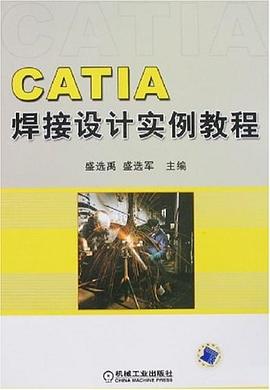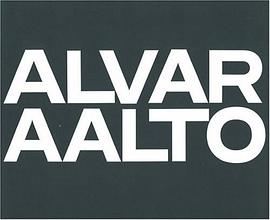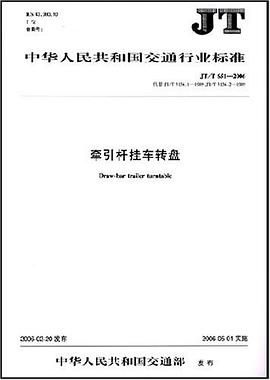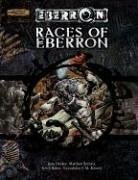
具体描述
Arnold J Toynbee was a historian whose 12-volume A Study of History had a huge impact on the thinking of his day. This epic, multi-volume work offered a grand synthesis of world history from the global perspective of the rise and fall of civilizations, rather than concentrating on the history of nation-states or of ethnic groups. For Time magazine Toynbee was 'an international sage' and certainly in the same bracket as 'Einstein, Schweitzer or Bertrand Russell'. Daisaku Ikeda is a figure of global stature, the spiritual leader of a worldwide lay Buddhist organisation devoted to the promotion of education, culture and peace. Between 1971 and 1974 Toynbee and Ikeda discussed many of the vital issues which confronted their societies in the early 1970s, all of which remain current and significant. Indeed, topics such as the problems of pollution, dwindling natural resources, conflict and war, the role of religion, and population growth, are even more pressing than they were thirty years ago. In this volume - which still reads as freshly as it did whenit was first published, and which is now reissued for a new generation of readers - the inspiring challenge issued by both men is framed as follows: will humankind choose to salvage its destiny by a revolution in thinking and morals? Or will disaster ensue if it pursues its present course towards self-destruction and the despoliation of the environment? While recognising that our survival is threatened by the imbalance between human immaturity and technological achievement, the optimistic message of this classic Dialogue is that man-made evils have a man-made cure.
Will disaster ensue if it pursues its present course towards self-destruction and despoliation of the environment? While recognising that our survival is threatened by the imbalance between human immaturity and technological achievement, the message of this classic is that man-made evils have a man-made cure.
作者简介
Arnold Toynbee (1889-1975), CH, was Professor of International History at the University of London until his retirement in 1955. His major published work was A Study of History, which appeared in successive volumes from 1934 to 1961.
Daisaku Ikeda (1928-) is the President of Soka Gakkai International, a lay Buddhist organisation with millions of adherents in over 190 countries throughout the world. He is the author of over 80 books on Buddhist themes, and received the United Nations Peace Award in 1983.
目录信息
Part II: Political and International Life * The Second Half of the Twentieth Century * Arms and War * Choosing a Political System * One World *
Part III: Philosophical and Religious Life * The Nature of Things * Roles Religion Plays * Good and Evil * Index
· · · · · · (收起)
读后感
刚刚看完。书是从学校图书馆借的,发现上面几乎只要是与中国有关的地方,都被人做了标记,尤其是那些称赞中国的地方,不但有标记而且写了热情洋溢的评语,反过来赞叹作者如何高明,而其他与中国无关的地方则几乎是崭新的。 一本好书,不该就这么去读。
评分一直觉得宗教很神秘,被马克思教导宗教是精神鸦片。。。。 这本书来自清教徒和佛教徒的对话,从人生、社会、政治、世界和哲学多角度讨论宗教的重要性,看得很吃力,也纠正了一些偏见 怪不得全世界有几十亿的教徒呢
评分中文名的翻译是《展望21世纪》,估计对于出版时候的1980年代的中国人来说是具有足够吸引力的。但当我在维机百科上面一查英文名为Choose Life: A Dialogue with Arnold J. Toynbee,并且在国外多次再版。所以此书应该翻译为《对生命的选择》通俗一点就是对《生活方式的选择》此...
评分1992年在大学图书馆里看到这本书的,看完后,发现买不到。为了得到这本书,我做了这辈子不多的有点卑鄙的事——对图书馆工作人员宣称书丢了…… 这是一本对人类对文明对历史对人性对社会对未来无所不谈的对话录,30多年过去了,它依然对现在和将来有启发的作为。当时,它是我...
评分池田大作是中国人民的老朋友。是中日邦交正常化倡导人之一,中国各届领导人都要接见他。他是创价学会的会长,创价学会是一个以佛教的生命尊严思想为根本,使人人幸福,推进世界永久和平的民众团体。 汤因比是英国伦敦大学历史教授,二战期间是英国外交部调查部长。 这本《二十...
用户评价
坦白说,初读这本书时,我有点被它的叙事风格迷惑了,它不像我习惯的那些结构紧凑的小说,更像是一系列松散的、关于人生片段的速写集合。但是,当我沉浸进去之后,才发现这种看似松散的结构,恰恰是作者高明之处——生活本身就是如此碎片化且缺乏明确导向的。作者似乎在告诉我们,真正的“选择”并非在宏大的十字路口发生,而是在无数个微小的犹豫、一次临时的心软、或者一个未曾说出口的抗议中悄然完成的。书中的人物塑造极其立体,没有绝对的好人或坏蛋,每个人都有自己无法逃脱的逻辑和困境。我尤其欣赏作者如何处理时间线,时不时地跳跃和回溯,就像大脑在回忆碎片,这种不线性的叙事方式,反而更贴合我们记忆和决策的过程。阅读过程中,我时常会停下来,合上书,对着窗外发呆,思考如果换做是我,在那种压力下,会做出何种抉择。这本书的阅读体验是内向的、沉思的,它需要你投入心神去拼凑那些看似无关的细节,最终拼凑出一个关于“生命轨迹”的全景图。
评分这本《Choose Life》的阅读体验简直是一场心灵的洗礼,它没有那种刻意的说教,而是用一种近乎旁观者的细腻笔触,描绘了生活中那些细微却又决定性的瞬间。作者对人性的洞察力令人惊叹,书中那些关于选择与后果的探讨,不是那种非黑即白的哲学思辨,而是渗透在每一个角色日常决策中的灰色地带。我尤其喜欢它对“不作为的后果”的刻画,很多时候,我们以为的“保持中立”本身就是一种强烈的倾向。书中的叙事节奏张弛有度,有时像夏日午后慵懒的微风,轻描淡写地带过一个重要转折点;有时又像暴风雨来临前的压抑,让你迫不及待地想知道角色将如何应对那份无可避免的命运。它让我重新审视了自己过去那些被视为理所当然的选择,那些看似微不足道的决定,是如何像滚雪球一样塑造了现在的自己。这本书的文字本身就带有某种磁性,读起来非常流畅,却又在你合上书本后,留下持久的思考余韵。它不是那种读完就扔在一边的流行读物,更像是一面镜子,映照出我们每个人内心深处对于“何以为生”的终极追问。
评分这本书的文学性是毋庸置疑的,但它绝不是那种故作高深、晦涩难懂的“纯文学”。它的力量在于它的普适性,无论你是哪个年龄层,从事什么行业,书中总能找到能与你产生强烈共鸣的情感节点。作者的语言简洁却充满张力,他很少使用冗长的形容词来描述情绪,而是通过人物的行动和环境的渲染,让读者自己去体会那种复杂的情绪暗流。例如,书中描写一次家庭聚餐的场景,寥寥数语,却将那种表面和睦下的紧张关系描绘得入木三分,那种“话未出口,却已心领神会”的压抑感,隔着书页都能让人感到窒息。我发现自己读得越来越慢,不是因为看不懂,而是因为想更仔细地品味每一个措辞。这是一种需要细细咀嚼的文字盛宴,它拒绝提供简单的答案,而是慷慨地为你展示了问题复杂而迷人的全貌。读完后,我没有获得什么“人生必胜秘诀”,但我获得了一种更加宽容和理解世界的视角。
评分我必须承认,这本书在某些章节的节奏处理上,显得有些跳跃和不羁,这可能不适合那些偏爱线性叙事和明确情节推动的读者。但正是这种近乎意识流的推进,使得书中的情感表达显得更为纯粹和原始。作者似乎并不急于推动情节发展,而是执着于捕捉角色在特定情境下最本能的反应。我印象最深的是书中对“失落感”的描绘,它不是用伤感的词汇堆砌出来的,而是通过对日常琐事的细致记录——比如空置的椅子、未被使用的咖啡杯——来构建那种渗透到骨子里的虚无。这种高级的含蓄,让我对作者的文字功力由衷佩服。这本书像是一个巨大的、不断变化的情绪光谱,它教会我们,人生中那些重要的“选择”,往往不是一个瞬间的决定,而是一系列缓慢积累的偏离,是日复一日对内心声音的忽略或聆听。读完它,我感到一种混合着疲惫和清醒的复杂情绪,仿佛刚刚跑完一场漫长的、需要不断调整呼吸的马拉松。
评分《Choose Life》这本书给我带来的冲击,更多是来自其对“环境决定论”与“个体能动性”之间张力的探讨。书中那些身处困境的角色,他们的挣扎与妥协,非常真实地反映了外部环境对个人意志的强大钳制力。但有趣的是,作者从未完全放弃对个体选择的强调,即使在最黑暗的时刻,也总有一丝微弱的、关于“另一种可能”的火花存在。这种平衡拿捏得极其精准,既避免了廉价的励志口号,也没有滑向彻底的虚无主义。我常常在想,作者是不是在通过这些故事,邀请我们进行一场深刻的自我审判:我们现在所处的“舒适区”,是否也是当初无数次“不作为”堆砌出来的牢笼?这本书的结构更像是交响乐,不同的角色和时间线是不同的乐章,它们独立存在,却又在最终的高潮处汇合,形成一种强烈的、关于“生命选择的重量”的共鸣。这是一种需要时间去消化的作品,它的回味比阅读本身更漫长、更深刻。
评分 评分 评分 评分 评分相关图书
本站所有内容均为互联网搜索引擎提供的公开搜索信息,本站不存储任何数据与内容,任何内容与数据均与本站无关,如有需要请联系相关搜索引擎包括但不限于百度,google,bing,sogou 等
© 2026 qciss.net All Rights Reserved. 小哈图书下载中心 版权所有





















